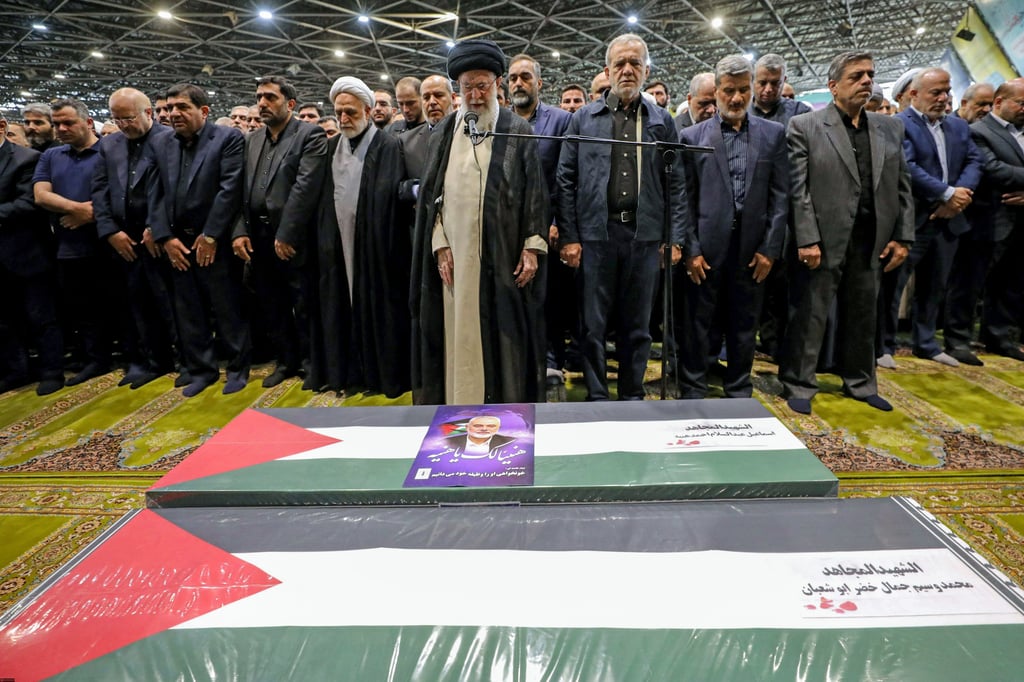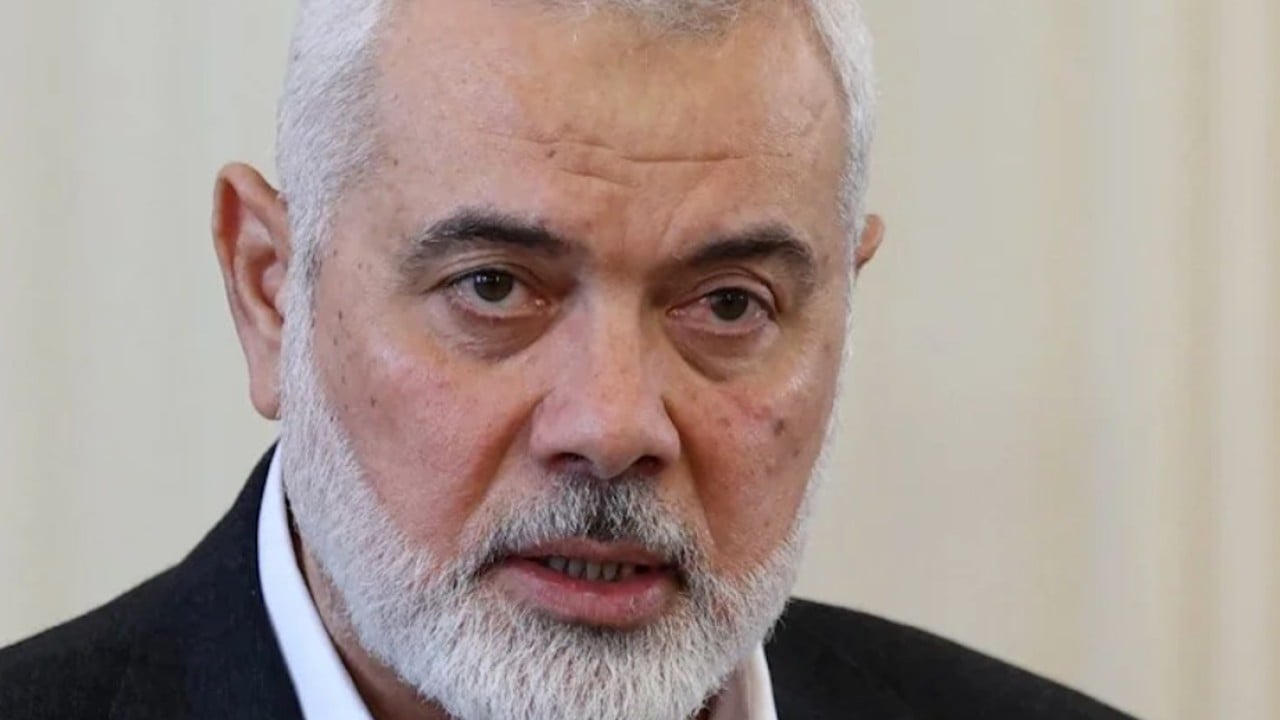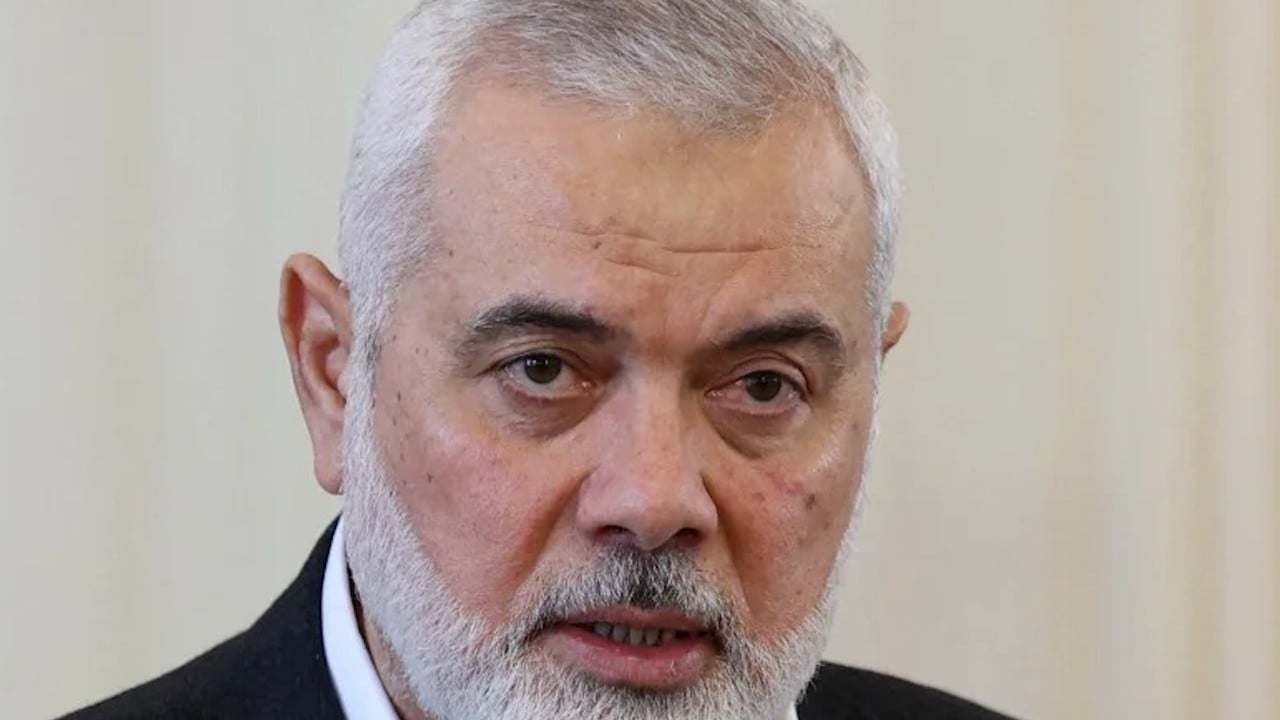The assassination of Hamas leader Ismail Haniyeh might push Iran to seek closer ties with China, according to a report by a Chinese credit ratings agency.
Ayatollah Ali Khamenei, Iran’s supreme leader, has reportedly ordered “harsh punishment” for Israel in retaliation for the killing of Haniyeh, who had attended the inauguration of President Masoud Pezeshkian last week.
Israel has not publicly acknowledged responsibility for Haniyeh’s death, but the attack on Wednesday has raised concerns of a wider war in the Middle East.
The attack follows air strikes on the Iranian consulate in the Syrian capital Damascus in April that killed 16 people, including seven members of the Revolutionary Guard.
This week also saw the death of Hezbollah commander Fuad Shukur and an Iranian military adviser in an Israeli air strike on a suburb of Beirut.
In a brief analysis published on Thursday, China Chengxin International Credit Ratings Company, a joint venture with Moody’s Investors Service, said Haniyeh’s assassination may force Tehran to rethink its foreign policy and step up efforts to move closer to countries like China.
It said the attack that killed Haniyeh showed that Iran could “hardly ensure the safety of a visiting ally” and had “in some way weakened Iran’s position as a regional power”.
Pezeshkian has previously said that his priorities would be about strengthening ties with neighbours and supporting the establishment of a “strong region”.
“The incident will intensify Iran’s demand for greater national security and strategic autonomy, and consolidate its strategic dominance in the Middle East region, which will drive Iran to rely more on external strengths to build up its security system and at the same time prompt its military deployment and geopolitical camp to move closer to third parties such as China,” the report said.
Nadeem Ahmed Moonakal, a research scholar at the International Institute for Iranian Studies in Riyadh, said the killing “may prompt Iran to seek more robust external support and reassess its security strategies, potentially leading to increased military and security collaboration with China while also placing greater emphasis on strengthening its indigenous capabilities”.
He said that in recent years, Iran had increasingly focused on making and exporting its own military equipment as part of its plans to ensure greater autonomy.
Haniyeh’s death was not the first time Iran’s security system has been compromised in attacks it blamed on Israel.
In 2020, Mohsen Fakhrizadeh, considered one of the masterminds of Iran’s nuclear programme, was killed after his car was ambushed in east Tehran. A year later, the internal power system of Iran’s Natanz uranium enrichment site was hit by an explosion.
But Ma Xiaolin, an international relations specialist at Zhejiang International Studies University, said the latest killing highlighted Iran’s intelligence and security failures and its “strategic negligence”.
He added: “The security, military and even policymaking departments in Iran didn’t expect that Israel would chase [Haniyeh] to Iran’s capital.”
Ma added: “This is just one of many security incidents in Iran, and it is unlikely that Iran will become too close to any country in terms of defence, security or technical equipment, or openly cooperate with countries like China and Russia.”
US sanctions may also limit the security cooperation between Iran and China.
On Wednesday, Beijing tightened its controls on drone exports with fresh restrictions on unmanned aerial vehicles and parts that have potential military uses.

China has been a key supplier for Iran, but Moonakal said it remained to be seen how these new controls would affect Iran’s ability to procure supplies.
“China has strategically expanded its diplomatic influence in the region, balancing relationships with all regional powers in the Middle East with strong economic ties,” Moonakal said.
“As a result, while recent developments are likely to push Iran closer to China, the specifics of their defence and security partnership will ultimately be determined by Beijing.”
When Chinese President Xi Jinping hosted Iran’s late president Ebrahim Raisi in February last year, the two sides said they would further security cooperation but stopped short of mentioning if joint research and weapons development was included.
Ma said Beijing had been “very cautious” over military cooperation with Iran, taking into consideration its relationships with the United States, Saudi Arabia and Israel.
“Iran may be keen to seek closer ties to Russia and China to counterbalance sanctions and military pressure from the US, but it won’t put all its security eggs in the Russian and Chinese baskets,” he said.



